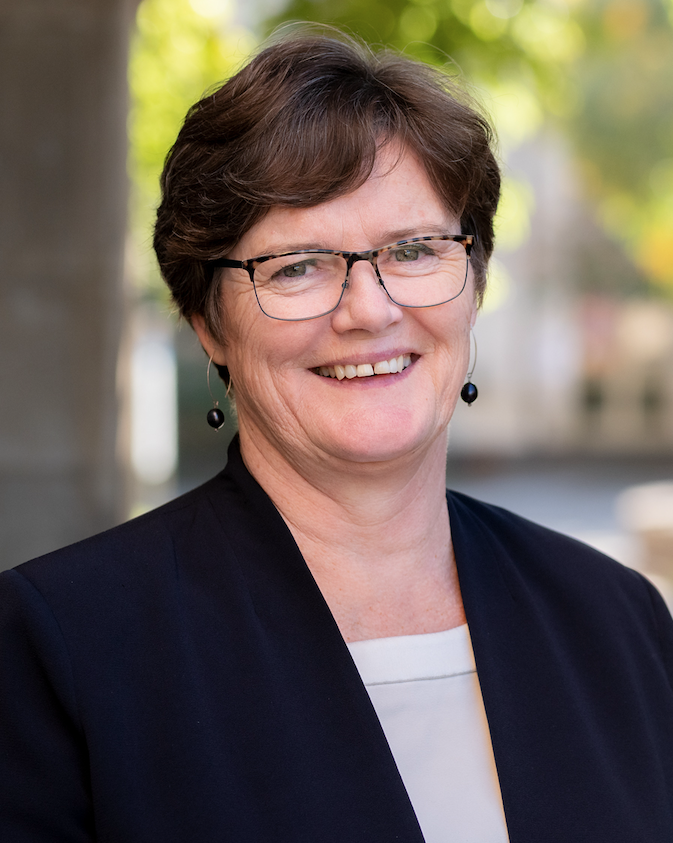2022 President’s Conversation
Australian Academy of the Humanities 2022-05-17
Water: abundance, scarcity, risk, variability, life
Water is life and it is also death. Eastern Australia battles with rain, floods and mould from the current La Niña conditions. And, it is not long since many of the same areas were experiencing drought. With climate change projections indicating more droughts and floods in the next few years, how should we think about risk, variability and change? What can we learn from ancient societies? Are our legal frameworks up to the task? How are people managing this issue on the ground, using a combination of ancient and modern wisdom? This President’s Conversation brings perspectives from linguistics, ancient history, legal scholarship, risk perception analysis and environmental management.
Event Details
Date: Wednesday 8th June, 1:00pm-2:30pm (AEST) Format: Zoom, Webinar
Speakers

Professor Lesley Head
Lesley was elected to Fellowship in the Academy in 2004, taking up the role of President in November 2020.
Professor Head is currently Redmond Barry Distinguished Professor Emeritus at the University of Melbourne. She has contributed to international debates about relationships between society and nature and her most recent research has been on the cultural dimensions of environmental issues including climate change.
She held an ARC Australian Laureate Fellowship at the University of Wollongong from 2009-14 where she was Director of the Australian Centre for Cultural Environmental Research. She was King Carl XVI Visiting Professor in Environmental Science in Sweden from 2005-06 and was awarded the Vega Medal of the Swedish Society for Anthropology and Geography in 2015.
Twitter: @ProfLesleyHead

Dr. Duncan Keenan-Jones
Duncan is Lecturer in Ancient History at the University of Queensland. His research focuses on the relationship between environment, technology and society in the past, especially in the ancient Mediterranean and in Australia, as well as how these can help us manage this relationship today. He has current projects on the climate, flooding and water management in ancient Italy and floodplain management in Australia’s channel country, as well as how Roman mortar developed and why it is so durable. He is an affiliate of UQ’s Centre for Policy Futures, having been a fellow there in 2020.
Before taking up the position at UQ, he held postdoctoral positions at the Collegium de Lyon (2017-2018), University of Glasgow (2014 – 2017) and the University of Illinois, Urbana-Champaign (2011-2014). Duncan’s doctoral thesis (Macquarie University, 2011), investigated the creation and social and environmental impacts of a unique, regional water supply network. Before his Masters of Arts in Ancient History (Macquarie, 2006), Duncan completed an honours degree in chemical engineering.
Twitter: @dkeenanj
 Image sourced: University of Melbourne Profile
Image sourced: University of Melbourne ProfileProfessor Rachel Nordlinger
Rachel Nordlinger is a Chief Investigator in the ARC Centre of Excellence for the Dynamics of Language, and Director of the Research Unit for Indigenous Language, in the School of Languages and Linguistics.
Rachel’s research centres around the description and documentation of Australia’s indigenous languages, and she has worked with the Bilinarra, Wambaya, Gudanji, Murrinhpatha and Marri Ngarr communities to record and preserve their traditional languages. She has also published on syntactic and morphological theory, and in particular the challenges posed by the complex grammatical structures of Australian Aboriginal languages. She is the author of numerous academic articles in international journals, and five books, including A Grammar of Wambaya (Pacific Linguistics, 1998), Constructive Case: Evidence from Australian languages (CSLI Publications, 1998) and A Grammar of Bilinarra (Mouton de Gruyter, 2014 – coauthored with Dr. Felicity Meakins). She is co-editor (with Harold Koch) of The Languages and Linguistics of Australia (Mouton de Gruyter, 2014). Rachel Nordlinger was elected Fellow of the Australian Academy of Humanities in November 2017.
 Image Sourced: University of Melbourne Profile
Image Sourced: University of Melbourne ProfileDr Erin O’Donnell
Erin is a water law and policy specialist, focusing on water markets, environmental flows, and water governance. She has worked in water resource management since 2002, in both the private and public sectors. Erin is recognized internationally for her research into the groundbreaking new field of legal rights for rivers, and the challenges and opportunities these new rights create for protecting the multiple social, cultural and natural values of rivers. Her work is informed by comparative analysis across Australia, New Zealand, the USA, India, Colombia, and Chile. Erin’s latest book, Legal Rights for Rivers: Competition, Collaboration, and Water Governance, is available now from Routledge.
 Image sourced: University of Adelaide Profile
Image sourced: University of Adelaide ProfileProfessor Melissa Nursey-Bray
Melissa’s research includes projects that explore how communities engage with climate change. She examines the role of conflict, social learning, knowledge, risk, values and perception in influencing community behaviour about and towards environmental issues. Melissa is on the management committee of the Water Research Centre at the University of Adelaide.
The post 2022 President’s Conversation appeared first on Australian Academy of the Humanities.